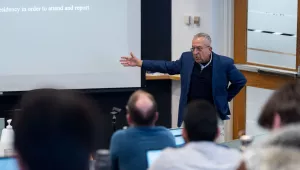The Nexus between Internationalism and Localism in Civil Conflict: Insurgents' Policy toward Humanitarian Access
Speaker: Ayako Kobayashi, Research Fellow, International Security Program
Why do some rebel groups restrict international humanitarian access to areas under their control, while others allow it? Some scholars posit that rebels strategically comply with international humanitarian law to legitimize their status in the international arena. Others underline the importance of exploring interactions between non-state armed groups and local populations from which protection norms may emerge. This interdisciplinary project will fill the gap between the internationalism and localism by proposing a new typology of rebel groups, addressing conditions under which rebels are more likely to allow humanitarian access, and through case studies illustrating the theory.
Please join us! Coffee and tea provided. Everyone is welcome, but admittance will be on a first come–first served basis.




